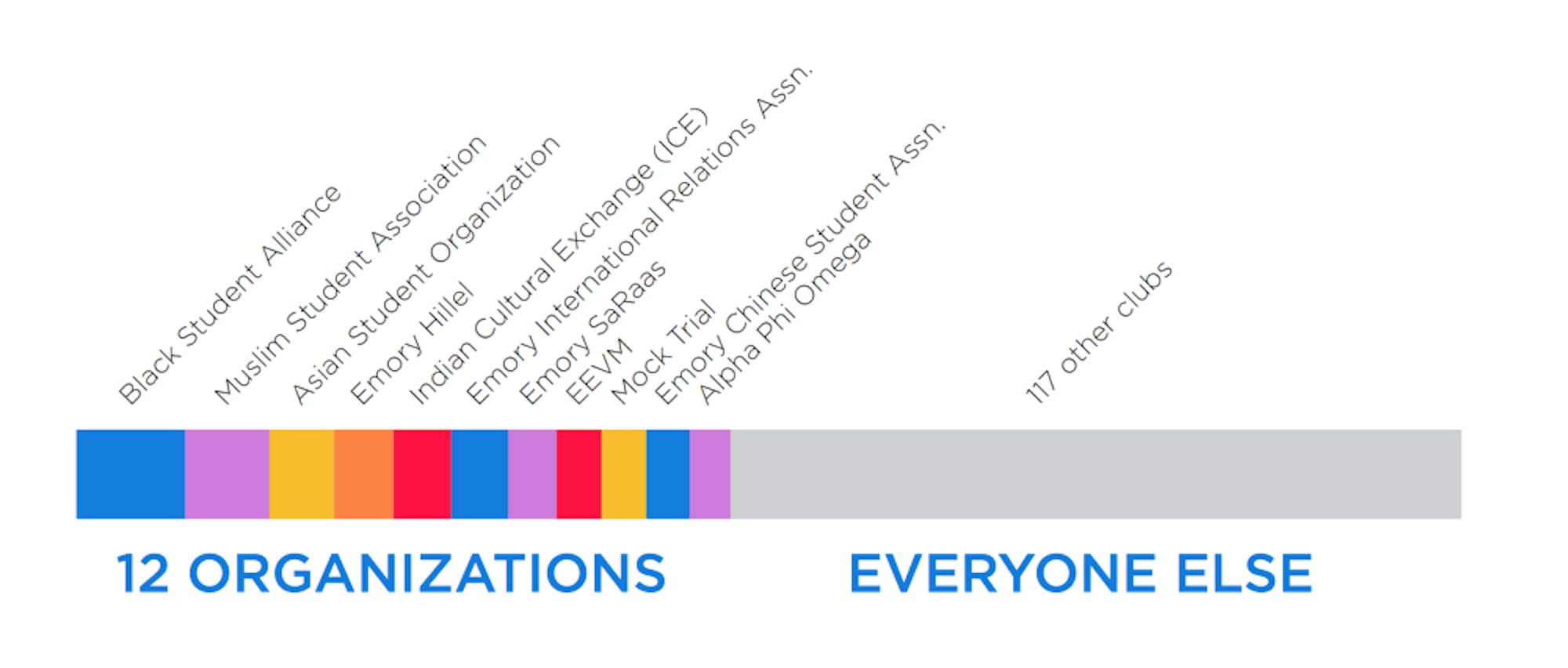
This year, the Student Government Association (SGA) reorganized the budget request system to promote transparency between divisional councils and organizations.
In past years, organizations often over-asked for funds for their events and did not use all of it, leaving SGA with a flawed budget for the remainder of the semester, SGA Vice President of Finance and Goizueta Business School junior Jason Yu said. College Council, the division under SGA that oversees student organizations chartered under the College of Arts and Sciences, attributed this disparity to their lack of a detailed budget.
Starting this year, the Student Government Association (SGA) will require a line-by-line, event-by-event funding request from each of its divisions at the beginning of each year.
At the beginning of each semester, clubs and organizations must request funding for each programming event they intend to host. From food to other supplies, items can be labeled as essential or nonessential, and item prices must be documented and verified.
This change resulted from the budgeting discrepancy last year, which forced both SGA and College Council to reevaluate the manner through which they distribute funding to their constituents.
Last year, SGA distributed money from the student activity fee, which is part of each student’s tuition, to College Council, which further divides it to student organizations. The annual universal budgeting system was intended to increase transparency in handling money within the system, Yu said.
After the implementation of this new system, the 129 organizations in College Council collectively requested approximately $437,000 for programming events. However, College Council only had $300,000 available to supply these organizations, due to the way the student activity fee is split among divisional councils. Of the $300,000 available, nearly half went to 12 organizations of the 129 in the Council. Eight of the 12 are cultural groups.
To make up for the difference, College Council cut each organization’s budget by approximately 34 percent across the board, College Council Vice President of Finance and Goizueta Business School junior Andrew Lee said.
Despite these new changes, College Council will keep emergency supplemental funding for programming events that arise throughout the semester.
OrgSync Changes
OrgSync, an online platform used to organize departments, programs and member-based organizations, was used by College Council last year to organize student organizations. This year, SGA requires all organizations and divisions to use OrgSync to centralize communication and processes.
Yu attributed SGA’s increased ability to deal with the demands of campus organizations to OrgSync’s clear record-keeping system.
“There are real benefits to OrgSync,” Yu said. “[The system] will make budgeting and everything easier.”
Instead of previous paper records, all budgeting and actions of organizations will be recorded online. Organizations can deliver payments and reimbursements through the system, which can be accessed at any time.
College Council Budget Allocation Process
CC’s new budgeting process hopes to prevent over-asking and irresponsible spending, College Council Budget Chair and Goizueta Business School junior Shujan Valiani said.
Semester funding requests from organizations will be entered in the budget calculator, an Excel document embodying CC’s monetary policy. All organizations’ requests are processed through this calculator, which will output the maximum amount College Council can fund — up to 84 percent of the total funding the program will require. Organizations must raise the rest of the funds through self-generated funds or supplemental funding.
“From what I’ve seen, organizations have been a lot happier this semester,” Valiani added. “[Students] have even come up to me after and said, ‘I can’t believe we actually got that funding.’ ”
The spending budget reflected the amount of programming and events each of these clubs produced.
Due to the new system and College Council budgeting, smaller organizations are now able to stage events of the same caliber as larger organizations, Lee said. However, larger organizations with more members have more experience, and therefore continue hosting more events, Yu said.
Correction (2/11 at 3:50 p.m.): Paragraphs two, three and nine were updated. In paragraph two, the article was updated to clarify that College Council oversees student organizations chartered under the College of Arts and Sciences only. In paragraph three, the article said that SGA requires a funding request each semester, but they require one each year. In paragraph nine, the article said that SGA will keep emergency supplemental funding for programming events, but College Council oversees supplemental funding for these events. The caption of the graphic was also updated.





